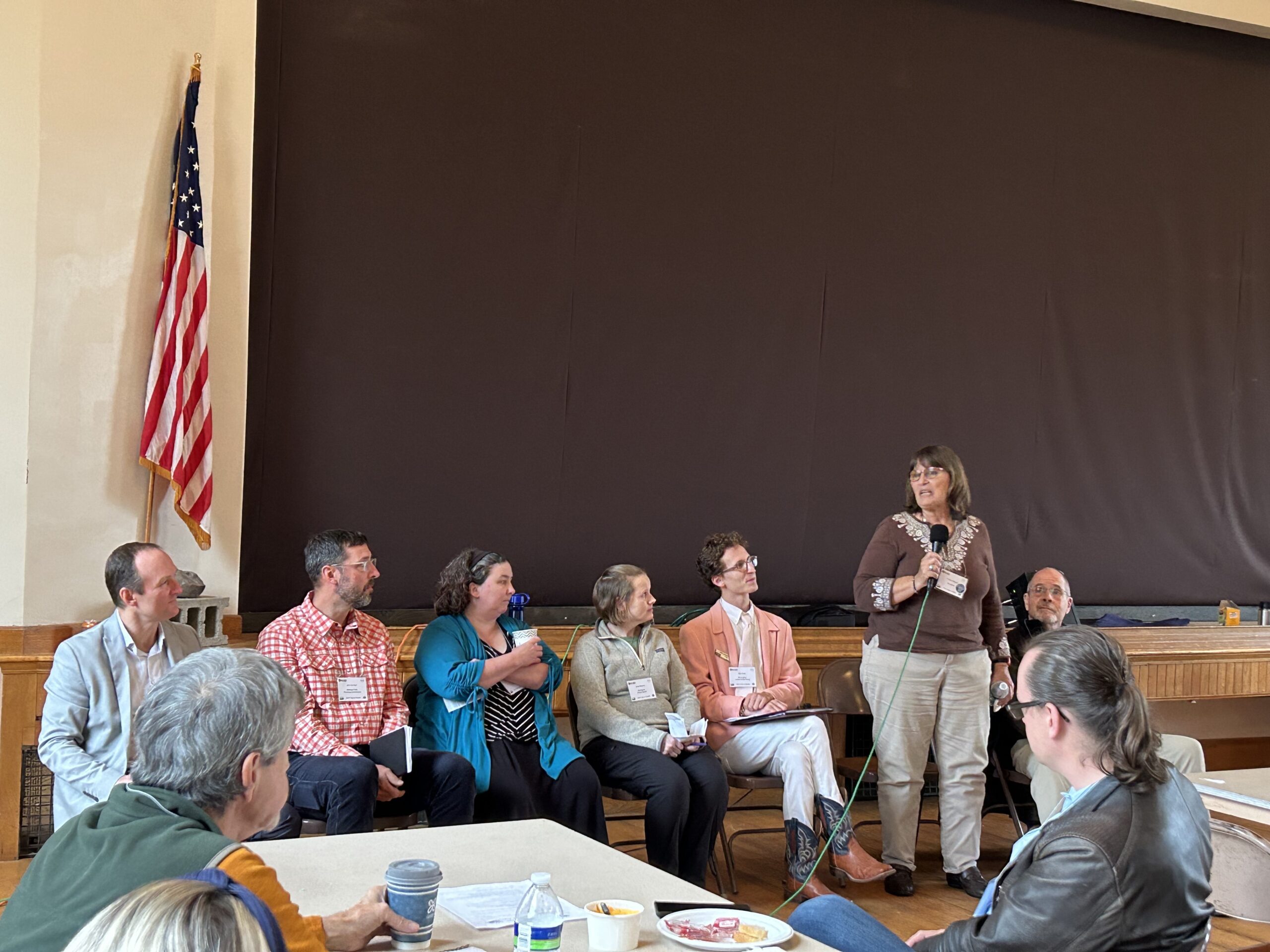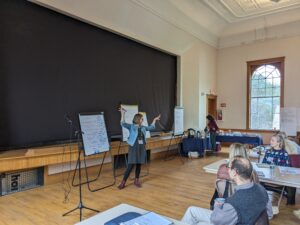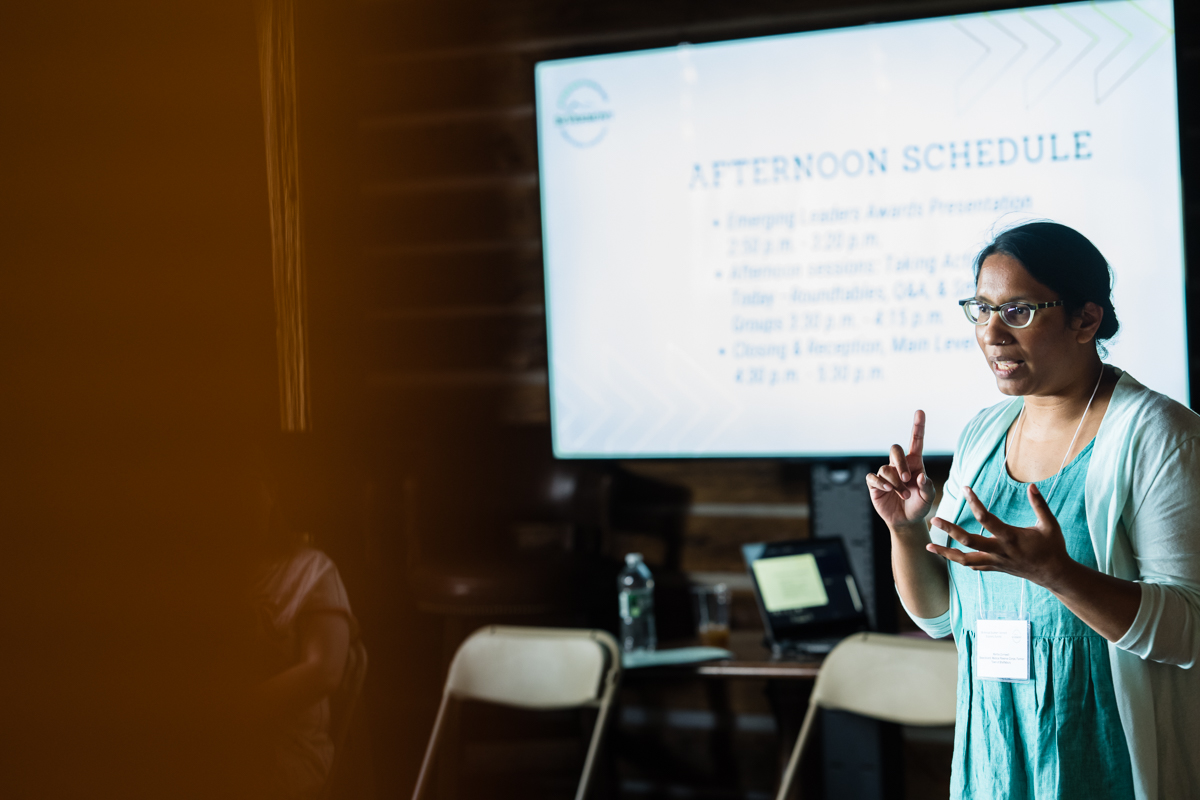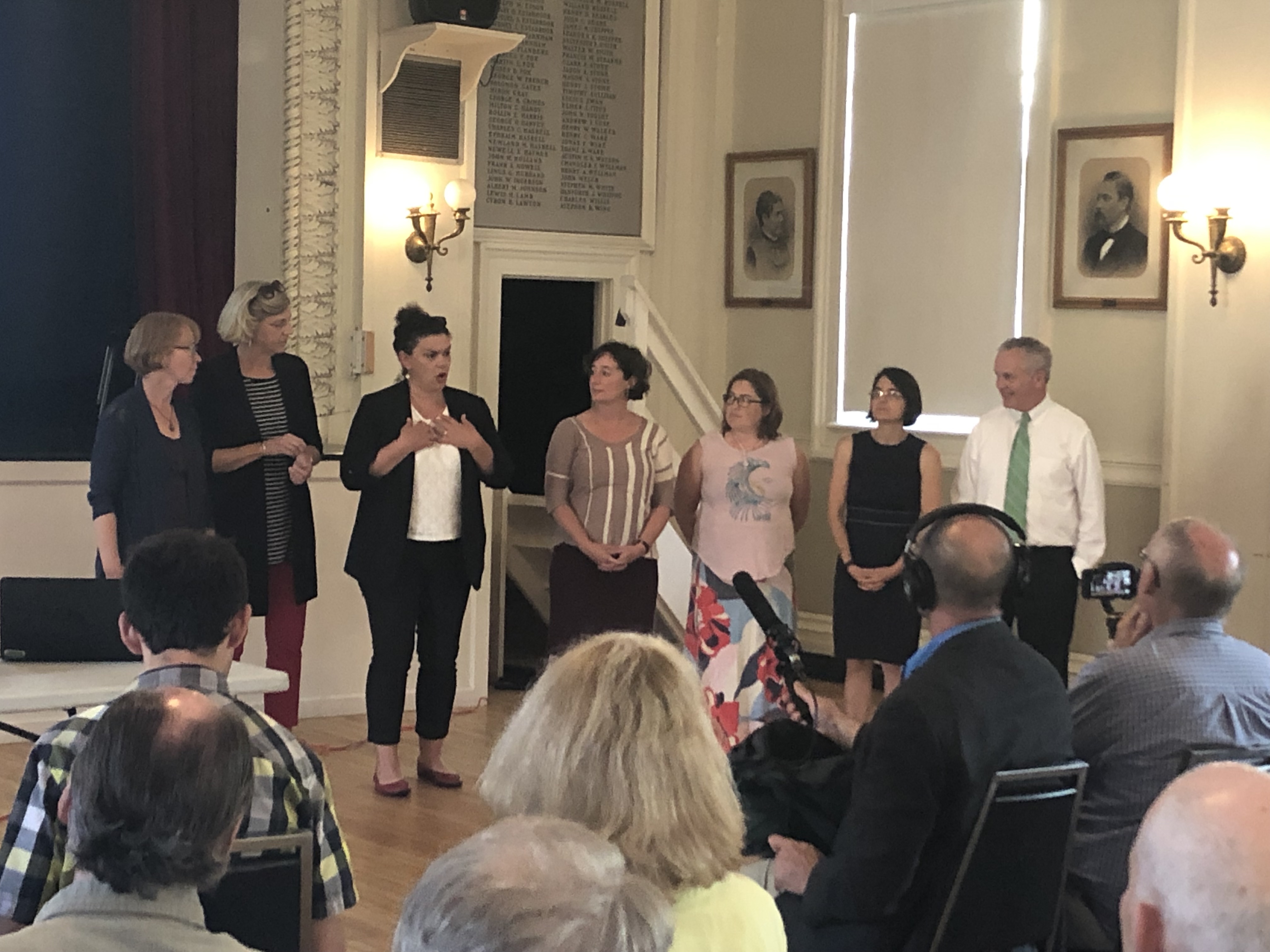
Developing Community Capital via Local Leadership: SoVT Get on Board’s Inaugural Session
Vermont communities need volunteers to fill local government positions and spearhead vital community projects. To be effective, those volunteers need resources, support, and training.
These facts are the driving force behind the “SoVT Get on Board” course, produced by Brattleboro Development Credit Corporation’s Southern Vermont Economy Project.
Attendees from across Windham and Bennington County gathered at the Townshend Town Hall on Saturday, October 21 for the first in-person session of the course. From grappling with high-level concepts about the multiple ways communities can create value, to hearing local leaders share about their roles, the group was engaged and eager to relate the conversation to their own experiences and communities.
The morning session revolved around the concept of “Community Wealth Development.” This framework shows how communities succeed when they build on social and cultural capital to create policies and public works that continue to build and circulate wealth within their community. Led by CWD consultant Daniel Parkins, the group considered how their communities were building multiple forms of wealth – from social capital (working together for mutual benefit) to cultural capital (working together to build shared value), natural capital (maintaining the health of natural surroundings), and finally arriving at the ability to generate the industrial and financial capital that support a community’s ability to invest in long-term vitality.
Switching gears, the group then participated in a lively interactive activity where attendees named basic things that communities have to have (roads, jobs, houses, garbage facilities, emergency services …) and then spent some time thinking through who is tasked with ensuring that the community actually has them.

The exercise showed how some of the more intransigent issues we come up against are also the ones that have half-a-dozen entities or governing bodies “in charge” of them. For instance, housing is addressed by the free market but also non-profit housing agencies, and constrained or permitted by local policies created by the planning commission and enforced by a development review board, state level policies like Act 250, and more.
Following a lunch prepared by the West Townshend Country Store (operated by the local West River Community Project), the group was joined by seven local leaders for a panel discussion on community leadership. The panel can be viewed on BDCC’s BCTV channel. From encouraging attendees to intentionally show up in spaces where they know they’re not ideologically welcome, to urging them to choose a role in the community that meets their passions and interests, and sharing strategies for learning how to skillfully do the work of being on a town commission, the panelists gave great advice for growing in local leadership.
Over the next three months, course participants will continue to get a well-rounded look at multiple ways that volunteers can support their communities through civic engagement, whether through participation in local governance, nonprofit boards, or community-driven projects.
Upcoming workshops will feature the expertise of state-wide organizations including Vermont League of Cities and Towns and the Vermont Council on Rural Development, and equip class participants with tools to help them become successful leaders in their community. Most importantly, they will leave with connections to other local leaders from across Southern Vermont who can offer mutual support along the way.
Special thanks to the Vermont Community Foundation for funding support, Townshend Town Clerk Ellenka Wilson for her warm welcome and support for the ins and outs of using a historic community building, and to the West River Community Project for their flexibility and loan of equipment for serving.
Extra special thanks to our local leaders panel: Al Claussen (West River Education District School Board Chair/Grace Cottage Hospital Board member); John Dunbar (Rockingham Planning Commission/Rockingham Incremental Development Working Group); Will Greer (Justice of the Peace, Bennington; Community Police Advisory Review Board, Bennington); John Hatton (Former president of Brattleboro Food Co-op Board; current board member of Downtown Brattleboro Alliance and Community Asylum Seekers Project); Dot Maggio (Brookline Select Board Chair/multiple other roles); Kate Rideout (River Valley School Board member); & Aileen Shute (Chair, Putney Select Board).
About the Brattleboro Development Credit Corporation:
The Brattleboro Development Credit Corporation (BDCC) is a private, nonprofit economic development organization with the mission of investing in the drivers of the regional economy so that people, businesses, and communities in Southern Vermont can thrive. BDCC serves as the State of Vermont’s certified Regional Development Corporation (RDC) for the greater Windham County area (including Windham County and the towns of Readsboro, Searsburg, Winhall and Weston). BDCC is one of 12 RDCs throughout Vermont. BDCC activity is made possible in part by a grant from the State of Vermont through the Agency of Commerce and Community Development. For more information visit: https://brattleborodevelopment.com/
About the Southern Vermont Economy Project (SVEP):
The Brattleboro Development Credit Corporation’s Southern Vermont Economy Project provides training and technical assistance to increase local capacity, skills, and resources in order to advance local projects critical to Southern Vermont achieving community, economic, and workforce development goals. SVEP is funded through the USDA Rural Community VDevelopment Initiative. For more information please visit: https://brattleborodevelopment.com/svep/



